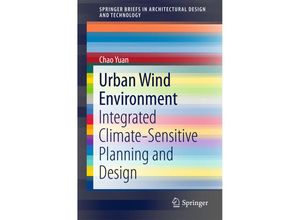In the context of urbanization and compact urban living conventional experience-based planning
and design often cannot adequately address the serious environmental issues such as thermal
comfort and air quality. The ultimate goal of this book is to facilitate a paradigm shift from
the conventional experience-based ways to a more scientific evidence-based process of decision
making in both urban planning and architectural design stage. This book introduces novel yet
practical modelling and mapping methods and provides scientific understandings of the urban
typologies and wind environment from the urban to building scale through real examples and case
studies. The tools provided in this book aid a systematic implementation of environmental
information from urban planning to building design by making wind information more accessible
to both urban planners and architects and significantly increasing the impact of urban climate
information on the practical urban planning and design. This book is a useful reference book to
architectural postgraduates design practitioners and planners urban climate researchers as
well as policy makers for developing future livable and sustainable cities.



